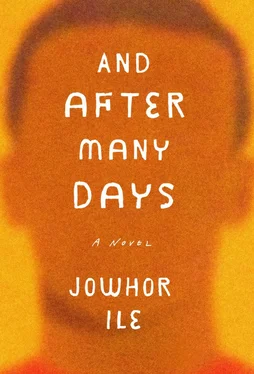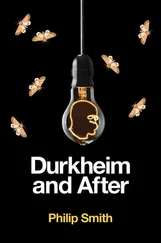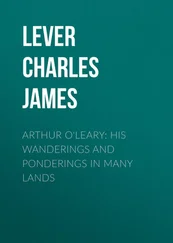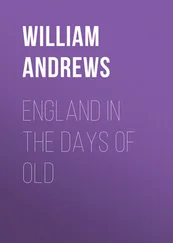Bendic said it was really nice weather for Boston in early September. That it was not too cold, a bit like harmattan weather. Bibi opened the car and invited Barisua to come sit inside with her. Paul got into the passenger seat, straightened out the sun visor to look at the mirror, then closed it up and went to the back to sit with Barisua and Bibi. Auntie Leba looked toward the car, and Barisua kept her face turned toward Bibi so that her gaze wouldn’t meet Auntie Leba’s — she didn’t want anyone to ruin her nice moment with cautionary remarks or maybe sending her off on a errand.
“So you just rushed down to pick up your children immediately on your return. Do you think something will eat them here if you stay an extra day without seeing them?”
Bendic laughed. “No, they return to school next week, else I would have left them with you for a while.” Ajie knew Bendic was only saying things that sounded agreeable without really meaning them, and Uncle Tam was in on the playful exchange.
“And your driver?”
“He resumes tomorrow.”
“You are sure you can still drive? When last were you behind a steering wheel?”
“Stop that nonsense,” Bendic said with a glint in his eyes. “I drove for over twenty years before I ever needed a driver, and I managed to get here by myself safely, didn’t I?”
It was time to go now, so they came out of the car to say their goodbyes. Uncle Tam gave Paul a firm handshake and then drew him close for an embrace. “Goodbye, safe journey, see you soon, thank you, come back again,” all were repeated several times, and then they finally got in the car. Barisua hurried to the gate to open it, and Uncle Tam and Auntie Leba followed the car as Bendic reversed and headed out.
Uncle Tam, Auntie Leba, and Barisua stood outside by the gate and waved at the Utus as the blue Peugeot 504 rolled down the street. Bendic honked in acknowledgment. The children waved from the car, and Ajie looked back at the three figures standing and waving by the gate, looking smaller and smaller as their car went farther down the road. Barisua was wearing a brown skirt and a green blouse; she did not stop waving until the Peugeot 504 turned a corner and went out of sight.
On the expressway, Bendic drove slowly in the speed lane. Paul sat in front with him, his eyes on the road. Bibi was squinting outside toward the breeze, her hand gripping the coat hook above the door, looking like she had a mandate to mind that exit. Cars overtook them, and some passengers turned back to give them disgruntled looks. Ajie could see that Bendic didn’t care about this. “We have missed you children,” he said. Even though Ma was at home waiting, he still said we .
This was the moment when Ajie realized that Bendic would one day die. He knew this because real people never said such things to their own children, that they missed them. Only people in films said those things, and everyone knew it was all an act. Film talk. Love you, Mum! Love you, too. Miss you, Dad! Miss you, son!
But here was Bendic, saying he missed them.
Whatever was next?
Bendic glanced every now and then in the side and rearview mirrors. His head was still dense with hair but speckled with a rich supply of gray. Looking at him from the backseat, even with the graying hair, Ajie wasn’t able to imagine his father as aging, even though Bendic had turned sixty-seven that year.
The Port Harcourt International Trade Fair was scheduled for April 4–18, 1995. The jingle was on the radio long before Ajie, Bibi, and Paul returned for their second-term break. The Rivers State Chamber of Commerce, Industry, and Agriculture also sponsored short TV programs to advertise the fair.
The children were in the car heading home after spending the afternoon in Bendic’s office. Their car sped under a banner left flapping on a high-tension cable up above the road. Port Harcourt International Trade Fair. The Garden City welcomes the world.
They drove past Isaac Boro Park, where sheds, booths, and kiosks had been set up for the fair. Car dealers had erected colorful shops. The TV commercials announced innovative local technology that was relatively cheap but as good as the best the world could offer: portable ovens manufactured in Ilorin, kerosene-run generators fabricated in Awka. Come and see for yourself, the ads implored. There would be sheds for furniture makers and interior designers from home and abroad, displaying standing and decorative wall mirrors, chandeliers, lights, lamps, beds and headboards, boudoir furniture, bathtubs and washstands, chairs, stools, chest drawers, and desks. There would be long rows for textiles, drugs and pharmaceuticals, and engineering goods.
In Shed 33, you would find the renowned trado-medical practitioner, Alahaji Dr. Musa Jubril, whose ads ran most frequently on TV and radio. He had solutions for all ailments stemming from both physical and spiritual sources. He specialized in herbal cures for asthma, barrenness, manhood problems, low sperm count, hypertension, heart disease, diabetes, internal heat, waist, and GBP (general body pain). He would brandish a little wrap of something and say, “This one here, if you put a portion in a bottle and fill with water , kai-kai, or any authentic gin and leave it for three days, then drink first thing every morning for one week, it will restore your body, it is also good for cough and for purging your system, cancer cannot come near you, and if you are having bad dreams, too, they will stop.”
A long bus painted green and yellow went by the other way and Ajie read out the words written on the side, Welcome to the Garden City, Host of the International Trade Fair.
“Why are we called the Garden City?” Bibi asked. There were some trees and flowers about town, Bibi said, but she didn’t think they exactly qualified Port Harcourt as a garden.
“Well, it was supposed to be,” Bendic began, and then stopped by the lights, where some hawkers shoved their wares into the window.
“Oga, see fresh banana. This na original wristwatch. Buy groundnut, one for five naira, I give you three for ten naira.” A boy who was about Ajie’s height squeezed some foamy water quickly on the windshield before Bendic could tell him not to bother, then began to wipe it quickly with a brush attached to a long stick. Bendic asked Paul to select some bananas and groundnuts. Eight fingers of banana in a bunch, going for ten naira.
Paul selected three bunches. “Give me these three for twenty.”
“Bros, na thirty,” the banana seller replied, and Paul made a show of returning them. “Okay,” the seller seemed to yield, “take am twenty-five, this na nice fresh banana.”
“Twenty,” Paul insisted, his eyes now on the red light, a little impatient. “Okay,” he conceded, “bring five naira change,” and the banana seller braced the tray on his hip and searched his pocket frantically for change before Paul handed him the money. The other boy had finished with the brush and was polishing off the windshield with a cloth just before the lights turned orange, and Bendic gave him some of the change from the banana seller. “God bless you, sir!” He showed a set of white teeth and threw in a salute for Bendic’s generous tip as the car sped off.
Bibi was munching already, biting off the banana and throwing groundnuts in her mouth, perhaps already forgetting her question to Bendic about the Garden City.
“The original plan for this town,” Bendic began, “was for it to be a small, self-contained space surrounded by gardens and parks.” He tried to catch Bibi’s face in the rearview mirror. It was named for Viscount Lewis Harcourt, a British Member of Parliament and secretary of state for the colonies, in 1913. Lord Lugard, who was the governor general of the north and south protectorates of Nigeria, wrote to this man, asking if the new port city could be named for him, as no local names were suitable. Lewis Harcourt, however, never visited the city, Bendic said as he turned onto Nzimiro Street, which was at all times shaded by trees and where colonial houses still sat quietly, surrounded by large lawns and short picket fences.
Читать дальше
